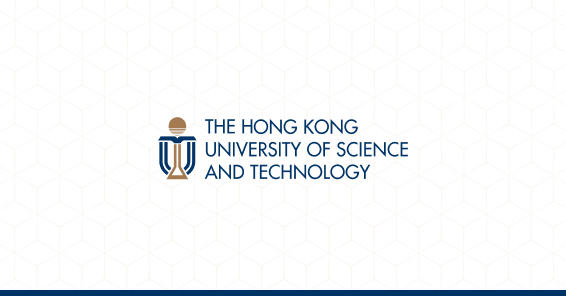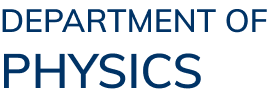2014-01-27

The Hong Kong University of Science and Technology (HKUST) PhD student Zhang Shanchao, Department of Physics, has won the 2013 Young Scientist Award. Zhang was awarded the honor in the Physical/ Mathematical Science category for the project “Coherent Quantum Interaction Between Photons and Atoms”. He also received the Best Poster Award for his poster on “Single-Photon Absorption and Reemission in Two-Level Cold Atoms” at the 21st Annual Conference of Hong Kong Institution of Science. Another PhD student Chen Shuming from the Department of Electronic and Computer Engineering, received the runner-up prize in the Engineering Science Category with his project on white organic light-emitting diodes (WOLEDs).
Now in its 12th year, the Hong Kong Young Scientist Awards scheme was established by the Hong Kong Institution of Science to recognize and honor promising young scientists and engineers in Hong Kong, and to promote science and technology development in the region.
In recent years, the study of light-matter interaction at the quantum level has drawn increasing attention not only because of its importance in better understanding fundamentals of the quantum world but also due to the promise it holds for potential applications in quantum information processing. As part of a major physics research group supervised by Prof Du Shengwang at HKUST investigating this area, Zhang’s main experimental research achievements were controlling and manipulating quantum interaction between photons and atoms, including the first observation of single-photon optical precursors, the realization of efficient photon-atom quantum interface, the invention of a novel dark-line two-dimensional magneto-optical trap, and the coherent control of single-photon absorption and reemission in a two-level atomic ensemble.
By using cold atoms in their magneto-optical trap, the research team demonstrated 49% single-photon storage efficiency of the optical memory, more than double the previously reported efficiency. Such high single-photon storage efficiency will bring the quantum light-matter interface closer to practical quantum information application, fostering quantum communications and quantum information networks. During Zhang’s PhD studies, he published a total of nine refereed journal research papers, including four in Physical Review Letters, two as the first author.
Supervised by Prof Kwok Hoi Sing, Chen Shuming’s research focuses on white organic light-emitting diodes (WOLEDs) for displays and lighting applications. One of the big challenges for WOLEDs is to maintain high efficiency without losing the color rendering index (CRI). By designing advanced device structures, engineering emission spectra, developing effective light out-coupling mechanisms, he was able to achieve a WOLED with high efficiency of 66 lm/W and a high CRI of 92. The developed WOLEDs have been applied in 4 inch displays/lighting panels, and pilot produced in a start-up company. Chen has published over 30 SCI papers on international journals including Advanced Functional Materials, Organic Electronics with more than 800 citations.
The Hong Kong Institution of Science was established in 1992 to foster the development of science in Hong Kong and to facilitate links with scientific communities in Mainland China, Taiwan and overseas. The Institution has nearly 400 members, covering physical science, life science, engineering science and mathematics, and actively supports the development of innovation and technology in Hong Kong. In this year’s Young Scientist Award, members of the audience at the venue were able to vote for awardees for the first time, accounting for up to 15% of the overall assessment.
Now in its 12th year, the Hong Kong Young Scientist Awards scheme was established by the Hong Kong Institution of Science to recognize and honor promising young scientists and engineers in Hong Kong, and to promote science and technology development in the region.
In recent years, the study of light-matter interaction at the quantum level has drawn increasing attention not only because of its importance in better understanding fundamentals of the quantum world but also due to the promise it holds for potential applications in quantum information processing. As part of a major physics research group supervised by Prof Du Shengwang at HKUST investigating this area, Zhang’s main experimental research achievements were controlling and manipulating quantum interaction between photons and atoms, including the first observation of single-photon optical precursors, the realization of efficient photon-atom quantum interface, the invention of a novel dark-line two-dimensional magneto-optical trap, and the coherent control of single-photon absorption and reemission in a two-level atomic ensemble.
By using cold atoms in their magneto-optical trap, the research team demonstrated 49% single-photon storage efficiency of the optical memory, more than double the previously reported efficiency. Such high single-photon storage efficiency will bring the quantum light-matter interface closer to practical quantum information application, fostering quantum communications and quantum information networks. During Zhang’s PhD studies, he published a total of nine refereed journal research papers, including four in Physical Review Letters, two as the first author.
Supervised by Prof Kwok Hoi Sing, Chen Shuming’s research focuses on white organic light-emitting diodes (WOLEDs) for displays and lighting applications. One of the big challenges for WOLEDs is to maintain high efficiency without losing the color rendering index (CRI). By designing advanced device structures, engineering emission spectra, developing effective light out-coupling mechanisms, he was able to achieve a WOLED with high efficiency of 66 lm/W and a high CRI of 92. The developed WOLEDs have been applied in 4 inch displays/lighting panels, and pilot produced in a start-up company. Chen has published over 30 SCI papers on international journals including Advanced Functional Materials, Organic Electronics with more than 800 citations.
The Hong Kong Institution of Science was established in 1992 to foster the development of science in Hong Kong and to facilitate links with scientific communities in Mainland China, Taiwan and overseas. The Institution has nearly 400 members, covering physical science, life science, engineering science and mathematics, and actively supports the development of innovation and technology in Hong Kong. In this year’s Young Scientist Award, members of the audience at the venue were able to vote for awardees for the first time, accounting for up to 15% of the overall assessment.
